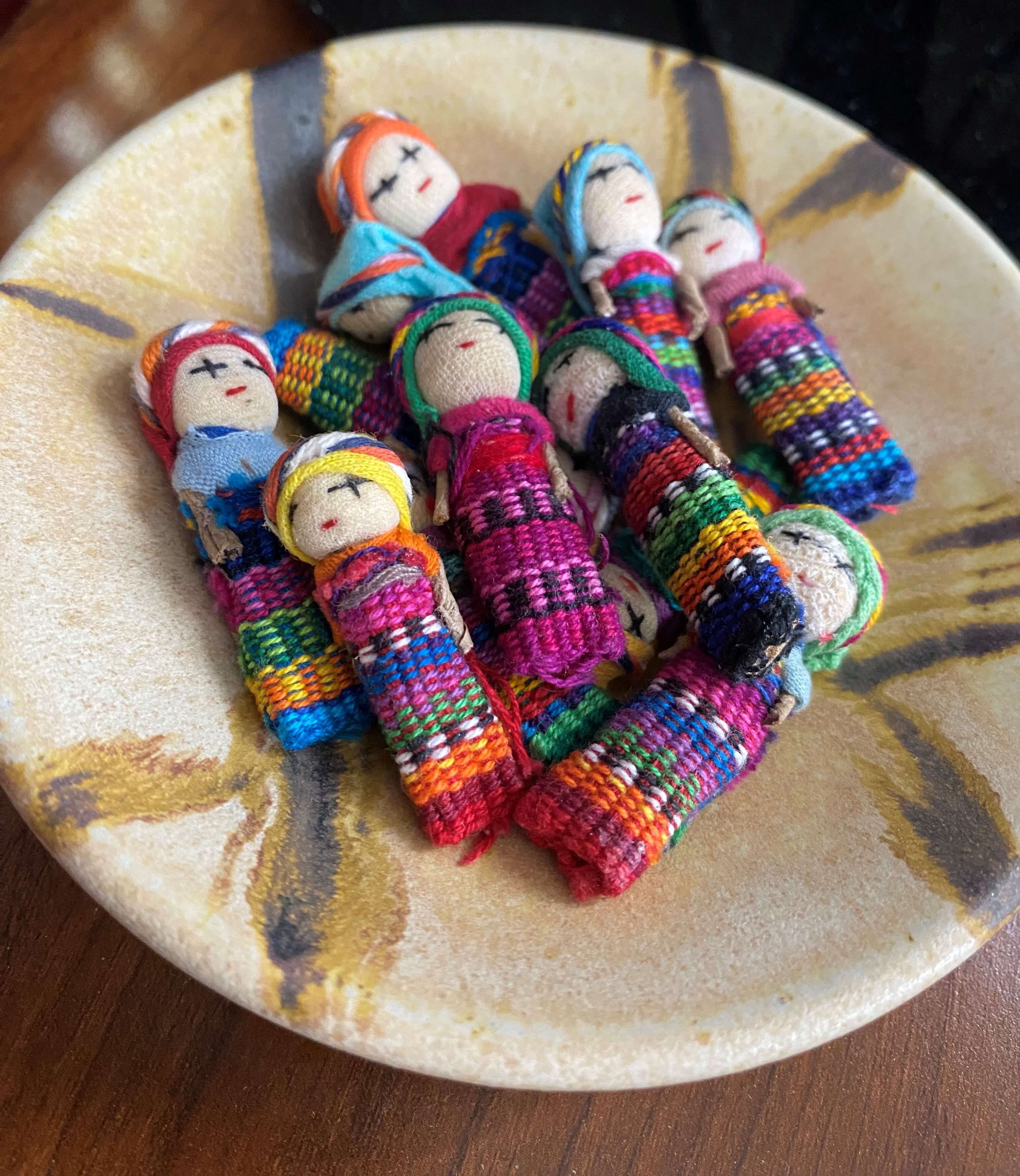Recently, I went to Guatemala on a mission trip with my church. The five days were filled with amazing experiences and stories to share once home. I also arrived home with a pack of Worry Dolls, which show the beautifully woven skirts of the area. Probably these aren’t new to some, but they were to me. The idea is to take one doll, tell it your worries, and put it under you pillow before going to sleep.
I’m sure there is great benefit in stating your worry and letting it go before heading off to sleep but I prefer to leave my Worry Dolls together in this bowl by my computer monitor. I look at them during work and I especially like to look at them when facilitating our Zoom Support Groups. For me, there is comfort in seeing the little dolls together. Instead of facing a worry or challenge on their own, the dolls are there together, in community.
That’s how I envision the work of support groups too. At Without Warning, the support group offered through the Rush Alzheimer’s Disease Center, each member is either living with younger onset Alzheimer’s disease or is the care partner. The members come to the various groups with their own individual worries, joys, challenges, laughter, and accomplishments.
As of this past April, Without Warning marked 19 years of support. An amazing accomplishment which speaks to the importance of facing life’s challenges with others who understand. Over the years, I have heard from so many group members that there is such a comfort in sharing ones story and hearing the story of others. Both people with dementia and those who support them say that sharing doesn’t change the experience but does seem to lighten the load, lighten the worries.
As Support Group Leaders, it becomes our job to bring these individual experiences together. Even when groups members might have different needs or be at different points of the illness, skilled group leaders find and express what unites. It might be a common emotion, response, or it might be an opportunity for a group member to share and mentor another.
As Without Warning members have said, a worry is lightened when carried as a group. As Support Group Leaders, we need to take these individual worries and tie them together, finding common themes and experiences that weave these individuals into a community.


